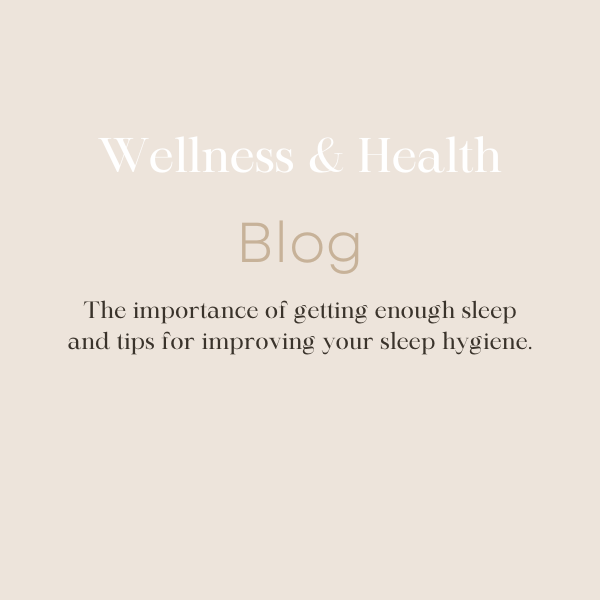Why Getting Enough Sleep is Crucial for Your Health and Well-Being
Sleep is one of the most important aspects of our daily lives, yet it is often overlooked. In today's fast-paced world, it's easy to sacrifice sleep in favor of work, socializing, or other activities. However, research has shown that getting enough sleep is essential for our physical, mental, and emotional health. In this blog post, we'll explore the benefits of sleep, discuss the risks of not getting enough sleep, and provide tips for improving your sleep hygiene.
Why is sleep important?
Sleep is important for many reasons, including:
- Restoration: During sleep, our bodies repair and rejuvenate themselves, which is essential for maintaining good health.
- Memory consolidation: Sleep plays a critical role in memory consolidation, which is the process of transferring memories from short-term to long-term storage.
- Mental health: Getting enough sleep is essential for maintaining good mental health and emotional well-being.
- Immune function: Sleep is crucial for our immune system to function properly, which helps us fight off infections and disease.
- Physical health: Poor sleep is linked to an increased risk of chronic health conditions such as obesity, diabetes, and cardiovascular disease.
Tips for improving your sleep hygiene
- Stick to a regular sleep schedule: Try to go to bed and wake up at the same time every day, even on weekends.
- Create a relaxing bedtime routine: Develop a relaxing bedtime routine, such as taking a warm bath, reading a book, or listening to calming music.
- Limit caffeine and alcohol: Avoid caffeine and alcohol before bedtime, as they can disrupt your sleep.
- Create a comfortable sleep environment: Make sure your bedroom is cool, dark, and quiet, and invest in a comfortable mattress and pillows.
- Avoid electronic devices: Avoid using electronic devices such as smartphones and tablets before bedtime, as the blue light they emit can disrupt your sleep.
- Exercise regularly: Regular exercise can help improve sleep quality, but avoid exercising too close to bedtime.
- Practice relaxation techniques: Try relaxation techniques such as meditation or deep breathing exercises to help calm your mind and body before bed.
Conclusion
Getting enough sleep is crucial for our physical, mental, and emotional health. By improving your sleep hygiene and making sleep a priority, you can enjoy the many benefits of a good night's sleep. If you're struggling with sleep issues, consider speaking to a healthcare professional for further advice and support.






